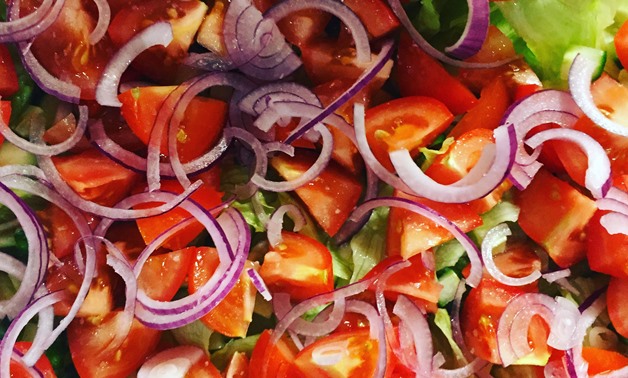
Photo by : photoo.uk/ via freeforcommercialuse.org #FFCU
Fasting is recognized for numerous benefits, not only spiritually; on a physical level, fasting allows our digestive system to heal and detoxify itself from all the chemicals, colorings, sweeteners and additives.
While fasting is good for our mind and body, it can come with unpleasant side effects: feeling low in energy, bloated after eating, weight gain, constipation, poor concentration and headaches. Symptoms like these are usually a result of irregular eating habits. Whereas the headache is clearly linked to declined caffeine intake, bloating and weight gain are the results of overeating during iftar. The key is to create an “as-close-to-normal” eating schedule as possible to help manage the symptoms of fasting.
With that in mind, here are my 10 tips to help you to stay healthy and energetic during Ramadan:
1. Make sure you drink plenty of fluids—tea and coffee don’t count—during and between iftar and sohour to prevent dehydration. Don’t overload on water in one sitting, and try to continuously sip on water so you don’t overload your stomach.
2. Don’t overeat during iftar or sohour. While it may be tempting to try and stock up for the fast ahead, portion control is key to help regulate your food intake and keep you energized the right way. For the same reason, don’t skip sohour.
3. Stay away from processed and junk foods; try to eat well-balanced iftar and sohour meals. Spending your calorie intake on nutritionally dense, high-fiber foods like whole grains, vegetables and fruit will help curb cravings and keep you full.
4. By the same token, try to limit your intake of fried foods or high-fat and high-sugar foods. They may give you a temporary high, but you’ll feel the crash later. If you’re desperate for something sweet, try fruits.
5. Eat slowly and don’t over-indulge. The benefits of slow eating include better digestion, better hydration and easier weight loss or maintenance.
6. Avoid foods high in salt such as pickles, salty crackers, nuts and canned foods; these will make you excessively thirsty.
7. Try not to drink too much tea and coffee, especially for sohour, as they can act as diuretics.
8. Eat more protein, such as eggs, for sohour, which will help keep you feeling fuller for longer.
9. Exercise regularly during Ramadan. If you already exercise, try sticking to your regular routine, but modify your workout if it feels too taxing. Even a simple, half-hour walk after iftar can help keep you on the right track.
10. Despite all the festive gatherings, try not to neglect your sleep; disrupted nights can wreak havoc on your hunger hormones. Getting the right amount of sleep will keep you from being tired, helping regulate your mood and your food intake.
Sherif Elfadalay is an ISSA Certified Elite Trainer and a specialist in sports nutrition and execise therapy. He is also a member of the European and UK registry of exercise professionals, and holds workshops and lectures on fitness and nutrition.
Instagram: Sherif.elfadaly / Facebook: Sherif Fadaly ISSA Elite Trainer

Comments
Leave a Comment